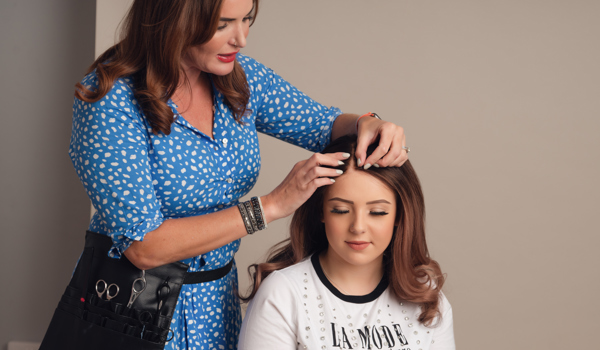When Sunderland Hairdresser Nicola Wood was undergoing treatment for breast cancer, she was surprised at the lack of options available for people experiencing hair loss.
She said: “After extensive research nationwide, I noticed that good quality hair loss services were not readily available to people on the NHS, and quality provision was usually reserved for those who could pay privately.”
Having worked with hair for 24 years and understanding how it can help people feel good about themselves, she knew the time was right to start a second business that would help people experiencing hair loss to feel more confident.
Nicola set about creating The Wonderful Wig Company, a purpose-built support studio for people in the area experiencing medical hair loss and cancer. During her own cancer treatment, she embarked on a journey to become one of the UK's most qualified experts in her field.
The Wonderful Wig company has grown from one to 21 team members spread across five sites. Its efforts have positively impacted over 10,000 individuals, with 1,200 of those being children.
It is also now the sole supplier to deliver the service to hospitals in Durham, Darlington, North Tees, and Hartlepool.
“We aim to see every referral within seven days,” Nicola said. “And we have a dedicated fast-track system for anyone whose hair loss is imminent, ensuring patients have their new hair before they lose their biological hair. We try to prepare them fully for what they are going to experience, answer any questions, calm any fears and most importantly, supply them with beautiful new hair, which is such a cornerstone of wellness and self-confidence for many people.”
Patients receive a voucher from the local trust to use towards a wig, and people can opt to top-up to buy a better-quality wig.
If someone can’t afford to top-up, they can access The Wonderful Wig Company wig bank, where they can supply a limited number of wigs for free—often upcycled or paid for by other patients who want to pay it forward.
The service also extends to people who usually wouldn’t qualify for wig vouchers, including women who have lost their hair through emotional trauma due to physical abuse.
Nicola, a qualified trichologist, is now looking to government to change how the service is viewed, as currently, it is not categorised as a medical issue.
“My intention is to shed light on the profound impact of hair loss on people's mental well-being, which often is considered a vanity issue”, Nicola said. “I am busy campaigning for hair loss to be properly recognised, and I plan to train people across the country to do what I can do. I want to see hair loss training delivered in colleges across the UK. My ultimate goal is to have someone in every salon across the country who knows what they are doing when it comes to supporting hair loss.”
Nicola has also recently set up a not-for-profit charity called the Inclusion Hair Network, whose mission is ‘to provide and promote inclusion for all within the hair and beauty sector.’

